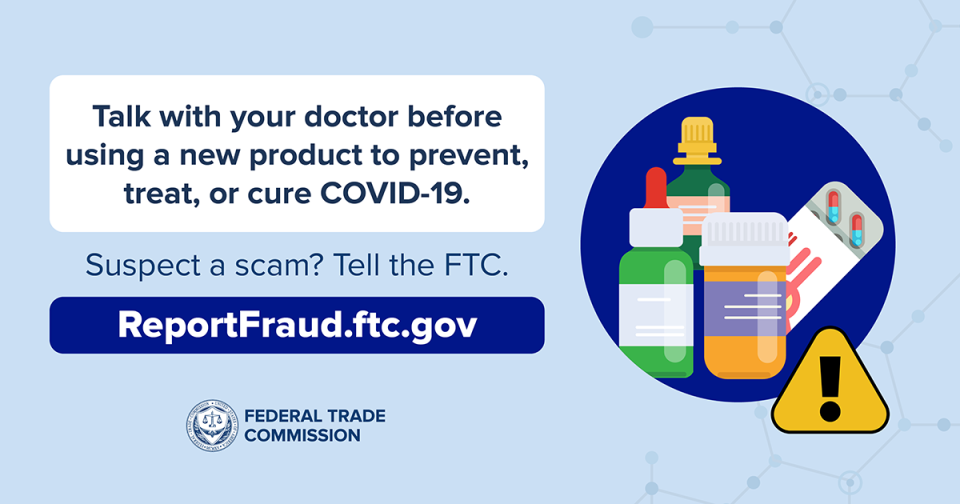Even though the COVID-19 health emergency is over, many Americans continue to struggle with treatment for illness ― and the FTC will continue go after bad actors who trick people with claims about their products. Case in point: The sellers of The 1 Virus Buster Invisible Mask ― also advertised as The 1 Virus Buster Card ― claim their product gives you an invisible, three-foot barrier of protection against 99.99% of airborne diseases, including COVID-19. Hard to believe? The FTC agrees. Read on to learn more.
In the FTC’s latest fake COVID claims case, the makers of The Invisible Mask said their product protected you from COVID-19 and other diseases with 30 days of airborne protection. But the FTC complaint says the people and companies behind those claims don’t have scientific evidence to back up their prevention claims. The FTC also says the defendants claimed Invisible Mask was FDA-approved…when it’s not.
The proposed court order bars certain defendants from making more unsubstantiated claims, and orders them to pay up, including some money back to the people they tricked. Litigation will continue against one defendant.
When it comes to spotting unsupported claims about the prevention, treatment, or cure of COVID-19, and other health problems:
- Ask your doctor. If you’re curious about a product that claims to treat any disease, talk to your doctor or health care provider about it.
- Stay informed. Visit MedlinePlus.gov, a site operated by the National Institutes of Health and Healthfinder.gov to find reliable sources of information about diseases and their treatments.
- Know that unproven products and treatments might be dangerous. Using unproven products might mean that you stop or delay taking proven medical treatments ordered by your health care provider. Unproven products might also cause bad interactions with your medications or other products you take.


I do wish the FTC and other enforcement agencies could nail the perpetrators with more substantial fines and penalties.
Barring them from continuing their crimes, and a slap-on-the-wrist fines are not sufficient for either deterrence or harm-reflecting punishment.
Jail time? Registry in a national perpetrators registry (similar to sex-offender registration)?
In reply to I do wish the FTC and other… by L Debivort
Agree.
In reply to I do wish the FTC and other… by L Debivort
They will only change their names and web site name. Bunch of crooks.😤
I bet that card prevents Covid (highly contagious and airborne) at least as well as the CDC's choice to prioritize handwashing and not mention masks in their public messaging.
Bet these work about as well as the CDC's choice to focus on handwashing to prevent Covid - highly contagious, AIRBORNE.
Writing about COVID19, as if it were real pandemic , and like fools pushing the haha vaccine & haha booster, 😄 I am losing faith is ConsumerReports stop me toning THE FAKE VIRUS COVID and do more edd research or find trustworthy sources
It is difficult to protect witless chumps from their own behavior.